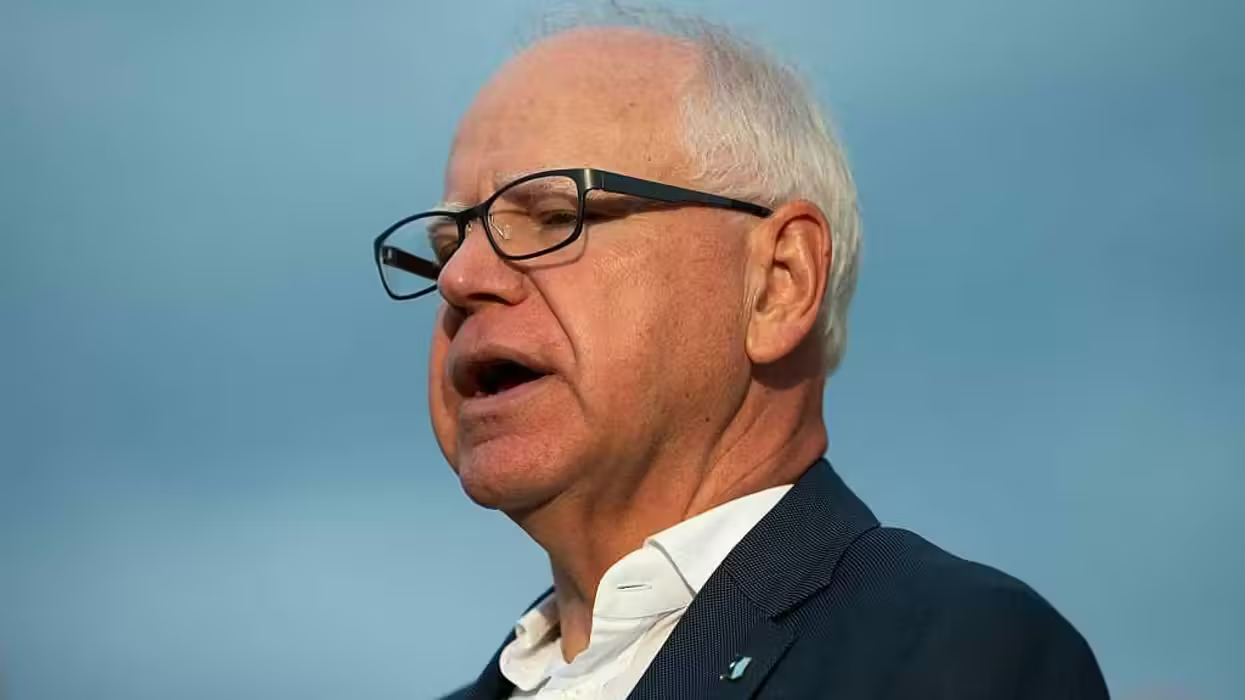While everyone in the media is focused on the Nov. 8 election, many Republicans are already jockeying for positions of party leadership in anticipation of a victory by Democratic presidential nominee Hillary Clinton. Assuming Republican Donald Trump loses, as he is widely favored to do, a number of important contests will determine the future and direction of the Republican Party in a post-Trump world.
The first of these is the election for the next speaker of the House — assuming, of course that Republicans keep the House majority. CNN reports that "pro-Trump" GOP forces are planning a challenge to remove Speaker Paul Ryan (Wis.) and/or deny him the 218 votes he needs to win on the first ballot. According to CNN, the conservative House Freedom Caucus is angry at Ryan for failing to demonstrate sufficient loyalty to Trump.
The reality is that the challenge to Ryan's leadership is much more complicated than anger over Ryan's handling of the political hot potato that has been the Trump candidacy. House Freedom Caucus members have openly groused about Ryan's perceived betrayal of their members in primary battles, leading to tension that boiled over when Ryan was perceived to side with moderate, Chamber of Commerce-aligned forces who successfully defeated House Freedom Caucus member Tim Huelskamp (R-Kan.) in a primary earlier this year. As an illustration of how little this particular fight had to do with allegiance to Trump, Ryan at the time had firmly endorsed Trump and Huelskamp had not.
 House Speaker Paul Ryan (Wis.) (AP Photo/Andrew Harnik)
House Speaker Paul Ryan (Wis.) (AP Photo/Andrew Harnik)
Staffers and members of the House Freedom Caucus have groused quietly for months that Ryan and his allies have been planning the neutering of the political power of the conservative wing of the House — since long before Trump was even the nominee.
It is true that some members of the Freedom Caucus have made Ryan's rocky relationship with Trump an issue. Others, meanwhile, have quietly mused that injecting Trump into the equation has muddied the Freedom Caucus' message about Ryan's perceived failures with respect to advancing the more conservative agenda that the Freedom Caucus prefers. Because of the media's obsession with Trump, they argue, the upcoming leadership fight will be cast as a referendum on Trump, rather than a referendum on Ryan.
Jason Pye, Director of Communications for the grassroots tea party organization Freedomworks, noted that the fight between Ryan and the Freedom Caucus is likely to continue even in the abesence of Trump. According to Pye, "What we saw in Huelskamp's and Rep. Paul Gosar’s (R-AZ) primary races, in which establishment groups backed these two House Freedom Caucus members’ opponents, could be a sign of things to come in 2018. That’s why it’s important for conservatives across the country to rally behind the House Freedom Caucus. These principled conservatives are the foundation on which the Republican Party should rebuild itself after November. We must redouble our efforts to protect and support the House Freedom Caucus, as well as grow its ranks."
The disorganization and lack of message discipline is characteristic of the struggles that have bedeviled the Freedom Caucus in their attempts to move the House GOP caucus to the right. During the tenure of former Speaker John Boehner (R-Ohio), the group mounted several unsuccessful and abortive challenges to Boehner's leadership after failing to recruit a credible candidate like Rep. Jim Jordan (R-Ohio) as an alternative. Ultimately, however, frustration with the group led to Boehner's resignation, and Ryan's ascension to the speaker's chair, which he refused to accept unless the entire caucus united behind him. The halcyon days of Republican unity that followed were extremely short lived, and it seems likely that Ryan will soon face the sort of perpetual intra-caucus squabbles that led to Boehner's ouster.
Another race to watch will be the one for Republican National Committee chair — which will represent a much more truly Trump-centric fight. Current Chairman Reince Priebus' handling of Trump's campaign has been the subject of nearly endless discussion and dispute, and many conservative party insiders remain furious with the RNC's quashing of dissent at the Republican National Convention this year.
 Reince Priebus, chairman of the Republican National Committee, speaks during the final day of the Republican National Convention in Cleveland on July 21. (AP Photo/Carolyn Kaster)
Reince Priebus, chairman of the Republican National Committee, speaks during the final day of the Republican National Convention in Cleveland on July 21. (AP Photo/Carolyn Kaster)
Priebus' term ends in January, and he has given every indication so far that he intends to seek re-election. Most party insiders believe that, if he runs, he will win, but former Hewlett-Packard CEO and Republican presidential candidate Carly Fiorina has mounted an aggressive behind-the-scenes campaign to at least gauge support for a potential challenge to Priebus. Others, including Ohio state GOP Chairman Matt Borges, are also rumored to be interested in the position.
If Trump loses handily and the GOP also loses the House and Senate majorities, Priebus will face serious questions from party activists about his handling of this election and his allocation of resources, even if most of the RNC committeemen appear to enthusiastically support him. If Priebus cruises to an easy re-election as expected, then many disgruntled conservatives — including those who have reluctantly backed Trump in the general — will view it as a sign that the party continues to enthusiastically embrace Trump's goals and positions, instead of more traditional Republican policies.
Either way, the election on Nov. 8 may not be the most consequential election to affect the Republican Party. Those elections may well occur in the weeks and months following Election Day.
While neither election will center directly on the issue of whether the Party intends to embrace Trump — including his platform and his primary supporters — after the election is over, the specter of the bitterly divisive 2016 primary will lurk in the background, and many Republican voters will perceive the elections through that prism. The manner in which House members and RNC Committeemen wrestle with these decisions will send a strong signal to party activists about which direction the GOP will take in a post-Trump world, even if the outcome of the elections are all but certain from the get-go.

 House Speaker Paul Ryan (Wis.) (AP Photo/Andrew Harnik)
House Speaker Paul Ryan (Wis.) (AP Photo/Andrew Harnik)
 Reince Priebus, chairman of the Republican National Committee, speaks during the final day of the Republican National Convention in Cleveland on July 21. (AP Photo/Carolyn Kaster)
Reince Priebus, chairman of the Republican National Committee, speaks during the final day of the Republican National Convention in Cleveland on July 21. (AP Photo/Carolyn Kaster)






